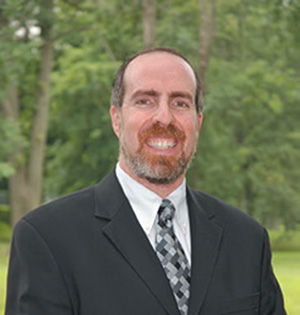
Last week at Torah Academy of Bergen County one of our alumni, Benjy Lankin, class of 2014, visited his alma mater. Benjy was in the United States visiting his parents who live in Highland Park, on vacation from Tzahal (the Israel Defense Forces) where he is participating in the Hesder framework, where he combines Torah study and military service. Immediately upon seeing Benjy after Shacharit, I asked Benjy to speak to my first-period shiur, and Benjy readily agreed.
We heard about Benjy’s decision to serve in Tzahal instead of returning to study at Yeshiva University after learning for two years at Yeshivat Shaalvim. Benjy felt the need to serve his people and to properly integrate into Israeli society, as he saw his future in Israel. It was fascinating to hear how Benjy was selected to serve as a commander only three weeks into his training. Benjy also spoke about the difficulty of adjusting to being away from the Beit Midrash where he devoted day and night to Torah study for two years. He was comforted by the fact that his service in Tzahal also constitutes a great mitzvah. He also noted the great spiritual and even military value of serving together with fellow yeshiva students. Bonds formed learning Torah bolster morale and help the student-soldiers cope with the daunting challenges posed in the Israeli army. It also helps them form minyanim and other support in executing Torah obligations in the military setting.
He noted the many practical reasons and benefits to serving in Tzahal. It is a key to business networking and advancement in Israel. It also teaches discipline, leadership and problem-solving skills. Realizing the many benefits, Benjy mustered the courage and was drafted.
I asked Benjy to share a poignant story and a dvar Torah. He told a wonderful story—that one Friday afternoon, after completing a 12-hour patrol of a highly sensitive border, a man dressed in a black suit approached his patrol unit. He, after proper and thorough identification and verification, asked if there was a religious soldier in the unit. The commanding officer pointed to Benjy. It turns out that the gentleman was the area’s chief rabbi and was in the middle of performing a wedding. The rabbi realized that all the observant males who were present at the wedding were cousins of the kallah and ineligible to serve as eidim (witnesses) to the kiddushin (wedding). The rabbi wisely asked who was religious in the unit without at first revealing the reason he was asking. This way the information would be presented lefi tumo, innocent of agendas. The commanding officer gladly permitted Benjy to go off base to serve as the witness. Benjy mentioned the stunning scene of him serving as a witness under the chupah, in full battle regalia. It was a pure Israeli scene. The juxtaposition of the civilian and the military as well as the kodesh (holy) and chol (non-holy) made the moment quintessentially Israeli!
Benjy’s dvar Torah did not disappoint. Benjy noted the two explanations Rashi offers for the word “vachamushim” from the pasuk “vachamushim alu Bnei Yisrael mi-Mitzrayim,” that we left Egypt “chamushim.” The more well-known explanation is the one Rashi cites from the Midrash, that only one in five (chamesh) left, since 80 percent of the Jews died during Makkat Choshech (the plague of darkness) due to their profound assimilation into Egyptian culture. Benjy noted how according to this approach we reached an outstanding population of 10 million Jews, since approximately two million Jews left Mitzrayim. It is interesting to note that the percentage today of committed Jews remains approximately the same size—in the area of 20 percent of the Jewish population.
Benjy focused, though, on the explanation Rashi cites from Targum Onkelos, that we left Egypt armed for battle. Benjy asked why it was necessary for us to bear arms upon leaving Mitzrayim if Hashem was performing a plethora of miracles on our behalf at that time! Apparently, Benjy noted, Hashem wanted even at that miracle-filled time for us to make the maximum effort possible before Hashem intervenes. Despite the omnipresent miracles we still were bidden to act within nature as much as possible. This represents the essence of service in Tzahal. Although Hashem makes manifold miracles to sustain the State of Israel against its many enemies, we must partner with Hashem and do our part by taking up arms to defend our beloved homeland.
Benjy represents the best of our Jewish youth. A true success in both spiritual and practical matters. He is a worthy descendant of Yaakov Avinu whose name Yisrael indicates his ability to successfully connect with Hashem and manage even the most difficult physical challenges. Young men such as Benjy reassure us that our future is in good hands with such high-quality young women and men!
By Rabbi Haim Jachter
Rabbi Haim Jachter is rabbi of Congregation Shaarei Orah, the Sephardic Congregation of Teaneck.










